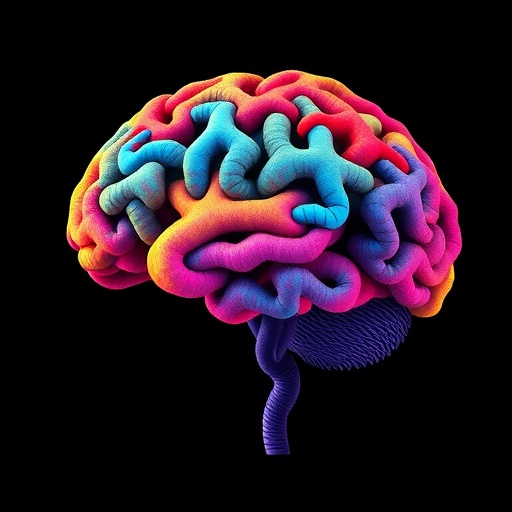A groundbreaking study published in the September 2025 issue of Aging-US unveils compelling longitudinal evidence linking accelerated biological aging with cognitive decline amongst Hispanic/Latino populations. Spearheaded by Myriam Fornage of The University of Texas Health Science Center at Houston, this extensive investigation employs advanced epigenetic clocks—molecular biomarkers derived from DNA methylation patterns—to track aging dynamics and their impact on brain health over a seven-year span. These results herald a significant leap forward in understanding how biological aging processes can forecast, and potentially guide interventions for, cognitive deterioration well before clinical symptoms of mild cognitive impairment (MCI) arise.
Epigenetic clocks represent a cutting-edge frontier in aging research, quantifying biological age far beyond chronological measurements by analyzing chemical modifications on DNA. These methylation marks accumulate at distinct genomic loci as individuals age and are influenced by genetic, environmental, and lifestyle factors. Unlike traditional biomarkers, epigenetic clocks capture the complex interplay of molecular events underlying aging across multiple tissues, offering a refined gauge of an individual’s biological state and susceptibility to age-related diseases. The study particularly focuses on five validated epigenetic clock models, including novel frameworks such as GrimAge and DunedinPACE, which have been calibrated to enhance sensitivity to health-related aging trajectories.
Tracking 2,671 Hispanic/Latino adults averaging 57 years of age and predominantly female, the researchers assessed cognitive function through comprehensive domain-specific tests administered at two visits, approximately seven years apart. By correlating changes in epigenetic age acceleration with alterations in cognitive performance, the team delineated clear associations: participants exhibiting faster biological aging demonstrated notably steeper declines in memory, processing speed, and executive function. Significantly, these molecular signatures also predicted a higher incidence of MCI diagnoses at the second visit, underscoring the prognostic power of epigenetic aging metrics.
What sets this study apart is its focus on a population historically underrepresented in aging and dementia research. Hispanic/Latino individuals face unique sociodemographic and health disparities that influence aging trajectories, yet biological aging markers have rarely been studied in this cohort at scale. By highlighting distinct biological aging patterns that correlate with cognitive outcomes in this group, the findings pave the way for tailored predictive tools and intervention strategies that better address their specific risks and healthcare needs.
Mechanistically, the epigenetic clocks encapsulate systemic alterations in DNA methylation landscapes that affect gene expression regulation, inflammation pathways, and neuronal integrity—all critical components in neurodegenerative processes. The GrimAge clock, for example, integrates methylation surrogates of plasma proteins implicated in inflammation and vascular health, linking accelerated epigenetic aging to processes known to compromise cerebral function. DunedinPACE similarly quantifies the pace of aging by modeling longitudinal physiological decline, providing a dynamic biomarker that mirrors real-time biological deterioration relevant to brain health.
Importantly, the robustness of these associations held firm after controlling for established confounders, including education levels, bilingual language usage, cardiovascular risk profiles, and other demographic factors. This resilience bolsters the argument that epigenetic aging reflects distinct biological mechanisms contributing to cognitive aging, beyond conventional epidemiological determinants. Moreover, the magnitude of cognitive impact attributed to longitudinal changes in epigenetic age rivaled that of APOE4 genotype status, a well-documented genetic risk factor for Alzheimer’s disease, emphasizing the clinical relevance of these molecular clocks.
The study’s longitudinal design provided critical insights into how trajectories of biological aging—not merely static age measures—intersect with cognitive decline. By analyzing temporal shifts in epigenetic age, the researchers demonstrated that accelerating biological aging over time is a more sensitive indicator of impending cognitive impairment than a single age estimate alone. This temporal dimension offers a promising avenue for early detection and monitoring, enabling clinicians to identify at-risk individuals for timely intervention when neuroplasticity and therapeutic response are optimally preserved.
These advances hold transformative potential for clinical practice and public health. Incorporating epigenetic age assessments into routine cognitive health screenings could revolutionize risk stratification, enabling precision medicine approaches tailored to individual biological aging profiles. Such tools might inform lifestyle, pharmacological, or cognitive intervention strategies designed to decelerate biological aging and mitigate cognitive decline. Furthermore, these findings invite deeper exploration into the modifiability of epigenetic clocks through interventions targeting epigenomic remodeling, inflammation, or metabolic health—key levers in aging biology.
The implications extend beyond Alzheimer’s disease to other dementia subtypes and cognitive disorders, broadening the relevance of epigenetic aging markers as universal indicators of brain aging. Additionally, the study underscores the necessity of including diverse ethnic populations in aging research to enhance the generalizability and equity of biomedical insights. Expanding this work to other underrepresented groups and integrating multi-omics data may uncover novel molecular pathways underpinning cognitive resilience or vulnerability across the aging spectrum.
The convergence of high-throughput DNA methylation profiling technologies, sophisticated machine learning models developing epigenetic clocks, and large-scale epidemiological cohorts exemplified in this research signifies a monumental stride toward demystifying the biological underpinnings of cognitive aging. Aging-US and the research community anticipate that continued innovation in this field will yield actionable biomarkers, preventative strategies, and ultimately, improved quality of life for aging populations worldwide.
This pioneering research thus offers a beacon of hope, illustrating that decoding and monitoring the molecular signatures of aging can illuminate the path to earlier diagnosis, personalized interventions, and potentially delaying the onset of cognitive impairment that plagues millions globally. With the Hispanic/Latino demographic growing rapidly and disproportionately affected by dementia-related conditions, these epigenetic insights open new horizons for reducing health disparities and fostering healthier cognitive aging trajectories in vulnerable populations.
Subject of Research: People
Article Title: Longitudinal associations of epigenetic aging with cognitive aging in Hispanic/Latino adults from the Hispanic Community Health Study/Study of Latinos
News Publication Date: 10-Sep-2025
Web References: http://dx.doi.org/10.18632/aging.206317
Image Credits: Copyright © 2025 Rapamycin Press LLC dba Impact Journals
Keywords: aging, epigenetic clocks, DNA methylation, Hispanic/Latinos, cognitive function, dementia




